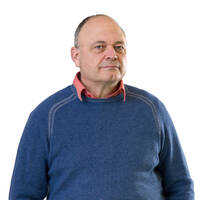
Stefanini Marco
Degree in Agricultural Science at the University of Milan. Agronomical and enological license.
Employee of the “Istituto Agrario” since 1985 and since 1995 researcher first band at the Operational Unit of Viticulture.
He is responsible as 2nd band technologist at the Platform of Genetic Improvement of grapevine.
More than 10 varieties are listed in the National Register of Variety of Italian wine.
He has conducted research in the field of genetic improvement with the practice of breeding and clonal selection with the study of resistance to biotic and abiotic factors, evaluating genotype environment interactions of different varieties and their clones. Deals with multiplication of planting material with traditional and innovative methods and problems of the system of the vineyard.
He has been the project coordinator of varietal improvement of viticulture and enology in Agrigento (Sicily) under the agreement between the Regional Institute of Vine and Wine (Sicily) and the “Istituto Agrario”; he participated in the activity of the Sensory Analysis Group that operates at the Institute evaluating the results of viticultural and oenological trials.
Scientific head of the Unit of San Michele in European projects GENRES CRAFT;
Scientific consultant of two projects in the field of vine nursery funded by the Provincia Autonoma di Trento in Brazil.
He collaborated on the project "Advanced Biology applied to grapevine, apple and salmonids".
He taught "Viticulture" at the “Istituto Agrario” and has been a visiting lecturer at the "Fachhochschule Wiesbaden" to play the courses "Ampelografia", "Variety and rootstock" respectively for the subjects "Fundamentals in Viticulture" and "Growing" for obtaining the title of Winemaker and Diplom-Ingenieur (FH) für Weinbau und Önologie activated at the Istituto Agrario di San Michele all’Adige.
He is currently a visiting lecturer from the Faculty of Engineering of Trento to play the course "Introduzione alla viticoltura".
Thesis advisor and researcher support of doctoral theses.
He is the author of 300 scientific articles in national and international journals
